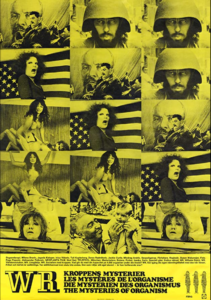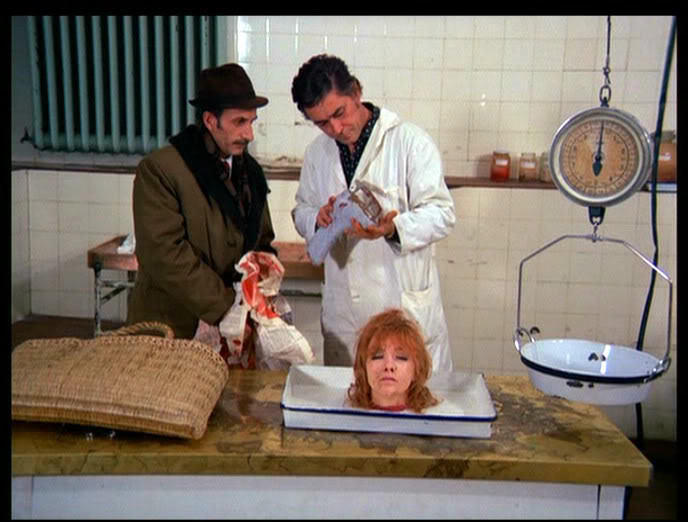“No excitement can ever equal the elemental force of the orgasm!”
|

Synopsis:
Through a creative mixture of documentary and fictional footage, Yugoslavian director Dusan Makavejev explores the links between sexual and political freedom in the Cold War era.
|
|
Genres, Themes, Actors, and Directors:
- Documentary
- Eastern European Films
- Satires and Spoofs
- Sexual Liberation
Response to Peary’s Review:
Though he acknowledges Makavejev’s stylistic ingenuity in WR: Mysteries of the Organism, Peary seems less than excited by the overall impact of this heady cinematic pastiche, lamenting the film’s lost opportunity to fully explore the “radical “free love’ philosophy” of Wilhelm Reich (the “WR” of the film’s title). Viewed years later, however, it’s possible to appreciate WR as more than the sum of its (at times confusing) parts. Makavejev uses Reich’s controversial therapy techniques and untimely death as the inspirational starting point for a heady meditation on life, love, and the pursuit of happiness through political and sexual freedom. While his points may not always be clear — as Peary points out, for instance, it’s difficult at times to tell whether Makavejev is mocking Reich’s disciples or lauding their work — his images never fail to provoke and/or shock.
Redeeming Qualities and Moments:
- A provocative mix of documentary and fictional footage

Must See?
Yes; this cult movie remains a unique artistic and political statement.
Categories
- Controversial Film
- Cult Movie
- Foreign Gem
(Listed in 1001 Movies You Must See Before You Die)
Links:
|


One thought on “WR: Mysteries of the Organism (1971)”
First viewing. Not must-see.
Taking the opposite view here, alas – though, in a way, not all that contrary since the assessment brings out that the director’s “points may not always be clear”.
I’d say they’re never clear, actually. The film has almost nothing to do with Reich. You almost have to come to the film already rather aware of his work and his place in the Cold War; the view of his life is cursory. However, the film (clumsily) draws a parallel between sexual energy/freedom/anarchy and man’s primal urge toward violence: at one point, some guy is seen ‘masturbating’ a rifle – and the film’s penultimate scene illustrates the ‘fine line’ between the fullness of sexuality and that of the urge to destroy.
There may actually be a provocative point in all of this – but the result is undisciplined at best. Along the way, we also get side-tracked with marginally-related vignettes: Jackie Curtis (of Warhol fame) gets a fair amount of time talking about growing into an awareness of love and gender (why?!) and there’s also some tangential blather about ‘black power’ and general unrest leading to violence in the late ’60s (I suppose – and why?!).
Particularly irksome is the editing (which throws the film all over the place) – for example, in a rare interesting sequence in which a doctor is describing the value of facial expressions and body language, our interest is genuinely piqued – only to have us (almost in mid-sentence for the doctor) ripped away to something (frustratingly) unconnected.
The film may indeed be a “meditation” but, personally, I would have preferred it being more awake and less muddy. Ultimately, the film ends with one of the main characters lip-synching a rather pleasant song suggesting ‘a plea for understanding’. If the plea is for people who are rather messed-up, I guess the point is made.